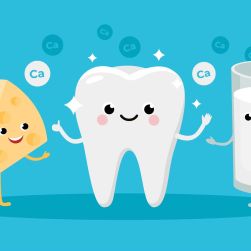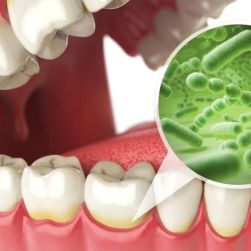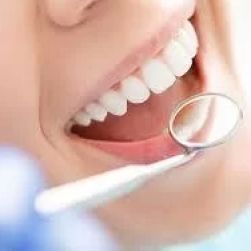The Connection Between Oral Hygiene and Overall Health: Why It Matters
Oral hygiene isn't just about keeping your teeth clean; it plays a crucial role in your overall health. Research has shown that poor oral hygiene can lead to a variety of health problems, from heart disease to diabetes. By maintaining a consistent dental care routine, you can protect not only your smile but also your body. In this article, we’ll explore how oral hygiene impacts your general health and why you should take it seriously.
- What is Oral Hygiene?
- Oral Hygiene and Heart Health
- Oral Hygiene and Diabetes
- Preventing Systemic Diseases with Oral Care
- Best Practices for Oral Hygiene
What is Oral Hygiene?
Oral hygiene refers to the practice of keeping the mouth clean and free of disease-causing bacteria. Good oral hygiene involves brushing your teeth, flossing, and using mouthwash to remove plaque and food particles. Regular visits to the dentist for check-ups and cleanings are also part of maintaining healthy teeth and gums. Without these basic habits, plaque can build up, leading to gum disease, tooth decay, and even more severe systemic health issues.
Oral Hygiene and Heart Health
One of the most surprising connections between oral hygiene and overall health is the impact on heart health. Studies have shown that poor oral hygiene, particularly gum disease (periodontitis), is linked to an increased risk of cardiovascular disease. The bacteria found in the gums can enter the bloodstream and contribute to inflammation in the arteries, leading to heart attacks or strokes. In fact, people with gum disease are twice as likely to suffer from heart disease.
How Poor Oral Hygiene Affects the Heart
The bacteria from gum infections may trigger an inflammatory response in the body, causing blood vessels to become narrowed or clogged. This increases the risk of atherosclerosis (plaque buildup in the arteries), which is a leading cause of heart attacks and strokes. Inflammation can also worsen conditions like high blood pressure and heart disease.
Oral Hygiene and Diabetes
There is also a strong connection between oral health and diabetes. People with diabetes are at higher risk of developing gum disease because elevated blood sugar levels can impair the body's ability to fight off infections. In turn, gum disease can make it more difficult for diabetics to control their blood sugar levels, creating a vicious cycle.
How Oral Health Affects Diabetes Control
When your gums are infected, the bacteria can cause an inflammatory response in the body, which may interfere with insulin's effectiveness. This can result in poorly controlled blood sugar, making it more challenging to manage diabetes. Conversely, maintaining good oral hygiene can help prevent or reduce the severity of gum disease, leading to better blood sugar control.
Preventing Systemic Diseases with Oral Care
Good oral hygiene doesn’t just protect your teeth and gums; it also plays a critical role in preventing a variety of other health conditions. Research has suggested that poor oral hygiene can increase the risk of conditions like:
1. Respiratory Issues
Inhaling bacteria from infected gums can lead to respiratory infections, including pneumonia and chronic obstructive pulmonary disease (COPD). People with gum disease may be more susceptible to respiratory illnesses due to the bacteria in their mouths entering the lungs.
2. Pregnancy Complications
Pregnant women with gum disease are at higher risk of delivering premature babies or having babies with low birth weight. The bacteria from infected gums can trigger an inflammatory response that may affect the pregnancy.
3. Kidney Disease
Studies have also shown that poor oral health can contribute to kidney disease. Chronic inflammation from gum disease can affect the kidneys over time, potentially leading to kidney failure.
Best Practices for Oral Hygiene
Maintaining good oral hygiene is the best way to prevent dental and systemic diseases. Here are some simple yet effective practices to follow:
1. Brush Twice a Day
Brushing your teeth at least twice a day is essential for removing plaque and bacteria. Use fluoride toothpaste and a soft-bristled toothbrush, making sure to clean all surfaces of your teeth and gums. Don’t forget to replace your toothbrush every three to four months.
2. Floss Daily
Flossing is one of the most important habits to reduce plaque buildup between your teeth and under your gums. It helps to remove food particles and bacteria that brushing alone cannot reach.
3. Use Mouthwash
Rinsing with an antimicrobial mouthwash can help reduce bacteria in the mouth and provide an extra layer of protection against gum disease. Look for mouthwash products with antibacterial ingredients like chlorhexidine or cetylpyridinium chloride.
4. Regular Dental Checkups
It’s important to visit your dentist regularly for professional cleanings and exams. A dentist can spot early signs of gum disease and other health issues before they become more serious.
Taking care of your teeth is not just about having a bright smile—it’s about taking care of your entire body. The link between oral hygiene and overall health cannot be overstated, and maintaining good oral habits can lead to better physical health in the long run.
If you’re interested in learning more about how oral health impacts your overall well-being, visit Dentistry Toothtruth for more expert advice and tips on maintaining a healthy mouth and body. Our dental professionals are here to guide you every step of the way!






